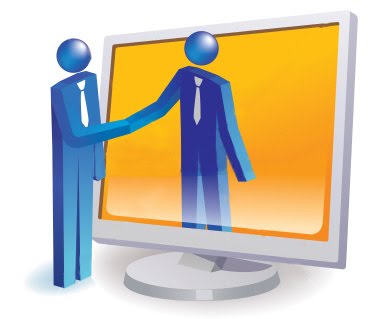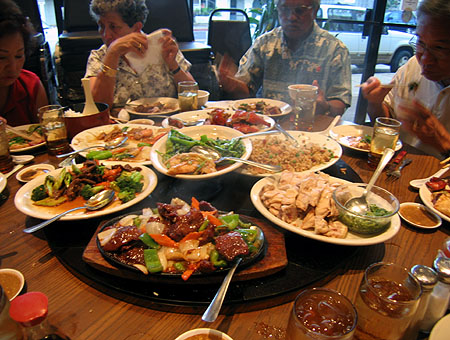In the dynamic world of business communication, where every conversation could lead to a new opportunity or a solution to a complex challenge, the art of active listening stands out as a crucial skill. Active listening in business is far more than a passive act; it’s an engaging process of fully comprehending, empathizing, and thoughtfully responding. This skill is not just about processing the spoken word, but about delving into the deeper meaning behind these words, grasping the nuances of tone, emotion, and intent. This approach to active listening is essential for building strong relationships, effective communication within teams, and with clients, making it a key component in achieving business goals.
The Importance of Active Listening in Business
Active listening in business is more than just hearing words; it’s about fully comprehending and engaging with the speaker. This crucial skill helps in building strong relationships and effective communication within teams and with clients. Active listening is essential for problem-solving and avoiding misunderstandings, a key component in achieving business goals. Emphasizing the importance of active listening can transform interactions, making every party feel valued and understood.
Tips On How To Use Active Listening
- Be Fully Present: Avoid interruptions and give your full attention to the speaker.
- Encourage Openness: Ask open-ended questions to understand the speaker’s point of view.
- Reflect and Clarify: Paraphrase and summarize to ensure you’ve understood correctly.
- Note Nonverbal Cues: Pay attention to body language and tone, which convey much more than words.
- Show Empathy: Demonstrate understanding and respect for the speaker’s ideas and perspectives.
- Respond Appropriately: Tailor your response to show that you value what the speaker is saying.
Improve your active listening skills and become a more effective leader with our Executive Presence & Leadership Training workshop. This comprehensive workshop is designed to refine your listening abilities, a crucial aspect of effective communication and leadership. By focusing on active listening techniques and engaged listening, you’ll learn to minimize distractions, improve productivity, and build trust with your team members and clients.
In this training, you’ll gain insights into how active listening can help you identify specific needs, address potential issues, and build stronger relationships. Our program not only provides practical tips on how to improve these skills but also integrates them into the broader context of executive leadership. Join us to transform into an engaged listener and a more impactful leader, capable of guiding individuals and organizations to achieve their goals with increased satisfaction and respect.
In a humorous and insightful essay in last weekend’s issue of the Globe and Mail, Katrina Onstad analyzes today’s growing disappearance of eye contact, which she cites as “the most potent tool of body language.” This essay struck a note with me, particularly because eye contact is so critical for effective communication and engagement in business, not just in social life. Likewise, knowledge of how to use devices respectfully, especially smart phones, is also very important – and, as Onstad notes, is a central reason for the current absence of eye contact and therefore engaged communication. Her concept, put in a business perspective, could help you keep on top of your game in business communication.
Active Listening Skills
Developing active listening skills involves more than just maintaining eye contact or nodding. It includes understanding the tone of voice, empathy, and recognizing nonverbal cues. Asking open-ended questions and taking notes can also enhance understanding. Active listeners tailor their responses to the speaker’s needs, showing that they are fully engaged in the conversation. These skills are vital for customer service, teamwork, and building rapport.
Engaged Speaking and Listening
As we have shared in another recent blog post on body language tips, body language can help to make or break your career. And as eye contact is a significant component of body language, it certainly carries weight in your career-related interactions.
In one-on-one situations, eye contact demonstrates to the other person in the conversation that you are interested in what they have to say. As your posture and gestures can reflect boredom or disengagement, a lack of eye contact will make this painfully obvious. As you will see in my earlier post, if what you say is not congruent with your body language, then people will believe your body language and not your words.
Eye contact is necessary during individual conversations. A less obvious context but equally as important for good eye contact is during public speaking or talking to a group. Effective public speakers scan the audience during a talk, maintaining eye contact with listeners in the crowd. When up onstage, keep in mind not to focus on one person the whole time, but move your eyes throughout the crowd. This will make the listeners feel like you are speaking directly to them as individuals, and will keep them engaged throughout the duration of your speech.
Likewise, even in a more casual context of a group or staff meeting, be sure to allow your eyes to move from person to person. Again, this will create the effect that you are speaking to them instead of at them.
Focus on the Conversation
Another component of Onstad’s essay that is both inseparable and foundational to her argument for sustaining eye contact is the argument that our devices – most notably, our cell phones – are making us less engaged with those around us. This concept is also important to keep in mind in a business setting, whether we are interacting on a daily basis with a colleague or trying to impress a client.
Cell Phones in Meetings
Often in day-to-day meetings, it is considered acceptable to have a smart phone or laptop present, as the rest of the workday continues and people need to keep on top of their tasks and emails. Nevertheless, try to check emails minimally, and don’t have a phone sitting right in front of you – or else you will be tempted to pick it up every time you receive an email. In doing so, you will be removing yourself from the discussion or blatantly disregarding what someone is saying.
It is for this reason that many companies have established a “no devices” policy during certain meetings, notably during staff meetings that occur only once per week or month. Otherwise, members present risk being distracted by other work.
During important and less frequent meetings, such as those with external clients or guests, no devices should be present. Keeping preoccupied with one would not only reflect poorly on you, but also on your company. If your ringer goes off during such a meeting, turn off the phone without checking to see who is calling and apologize after the meeting.
Cell Phones at the Dinner Table
Though phones and other devices are often acceptable in meetings, it is never appropriate to keep one on the table (or on your lap) during a meal. Again, if you are out on a business lunch with a client or a company guest, bad business etiquette becomes a poor representation of your company.
While cell phones on the dinner table are inappropriate, it is equally unacceptable to try to use a phone discreetly – due to the reality that it simply won’t be discreet. In her essay, Onstad describes a situation that happens all too frequently:
You are mid-sentence and suddenly the listener’s eyes slide southward to her own hand or the table or her lap. Whether she glances back immediately or – and this hurts – begins pecking away at whatever device proved more important than the final part of your sentence, the moment of connection that came before has snapped like a twig.
In business, moments like these are not only rude, but they can also be destructive to your credibility.
In daily life, remembering to put down our devices and make eye contact is important if we want to actively engage with our surroundings and with the people around us. In business, doing just that is crucial to effective communication, to displaying the best level of professionalism, and ultimately to advancing your career.
Active listening is crucial in business communication and improving communication, to help individuals and organizations. If you want to improve these essential skills, our workshops and coaching programs are designed to deepen your understanding and practice of active listening in business, an investment in your professional growth and success.
Share this blog post with others!










